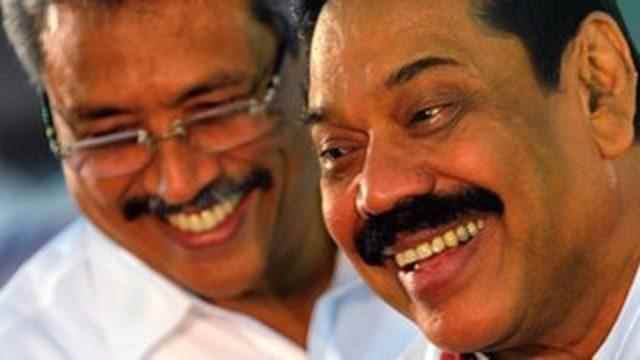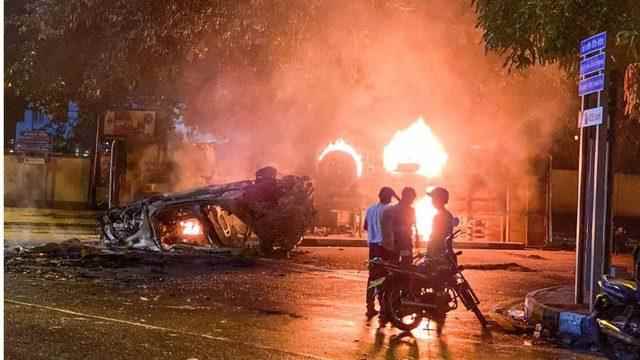Sri Lanka is currently experiencing an economic crisis that has turned the lives of its 22 million people upside down. The Rajapaksa brothers, who were proclaimed heroes 13 years ago when they ended the decades-long civil war by crushing the Tamil Tigers, are today turned into political leaders blamed for the crisis. How did this change happen and what might happen next?
From the beginning of April, crowds poured into the streets demanding the resignation of President Gotabaya Rajapaksa and Prime Minister Mahinda Rajapaksa, accusing them of dragging the country into economic disaster. But this week marked an important turning point in the crisis.
First, Prime Minister Mahinda Rajapaksa resigned after supporters attacked anti-government demonstrators and violent clashes erupted across the country. Meanwhile, the homes of dozens of politicians, including the Rajapaksas, were set on fire.
Rajapaksa, 76, was evacuated by helicopter from his official residence, surrounded by angry crowds, to a naval base in the northeast of the country.
Meanwhile, a court banned him from leaving the country. This was a very humiliating situation for a twice-presidential politician.
However, with Mahinda’s resignation, the demands and pressures for the resignation of his 72-year-old brother, Gotabaya Rajapaksa, who became president, did not end.
Although the President has not considered his resignation demands so far, he has had to make some concessions. For example, he agreed to transfer some of his powers to parliament and appointed veteran politician Ranil Wickremesinghe as prime minister of the broad-based government.
But the president’s political future still seems at stake, and some commentators say Gotabaya Rajapaksa will have to resign sooner or later.
Sri Lanka is currently on the verge of its worst economic crisis since its independence from Britain in 1948 and is unable to handle political instability. Public anger came to a boil with price hikes, food and fuel shortages. All this led to the disgrace of the Rajapaksa family, who had dominated Sri Lankan politics for over a decade.
When Mahinda Rajapaksa suppressed the nearly thirty-year armed rebellion of the Tamil Tigers organization, which fights for the rights of the Tamil minority, with military operations in 2009, she was seen as a hero by the majority of the country’s population, the Sinhala.
Political commentator Kusal Perera says he is the most popular Sinhala-Buddhist leader in the history of independent Sri Lanka, even referred to as “Emperor Mahinda” by some.
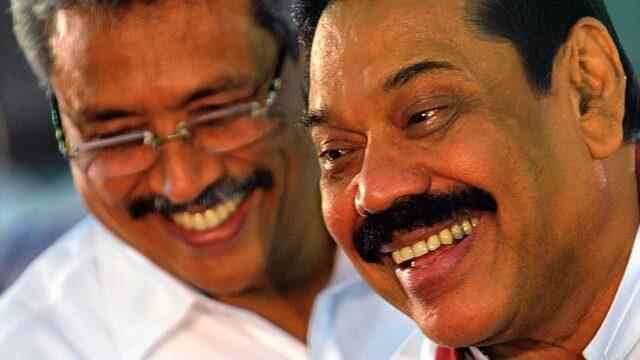
Mahinda, whose father was also a member of parliament, had risen from opposition leader to prime minister in 2004.
He became president a year later and appointed his brother Gotobaya as defense minister. It was a big career move for the younger brother who lived a quiet life in the USA after retiring from the Sri Lankan army.
Gotabaya had returned to support his brother, but he soon came to the fore and became famous for his ruthless decisions.
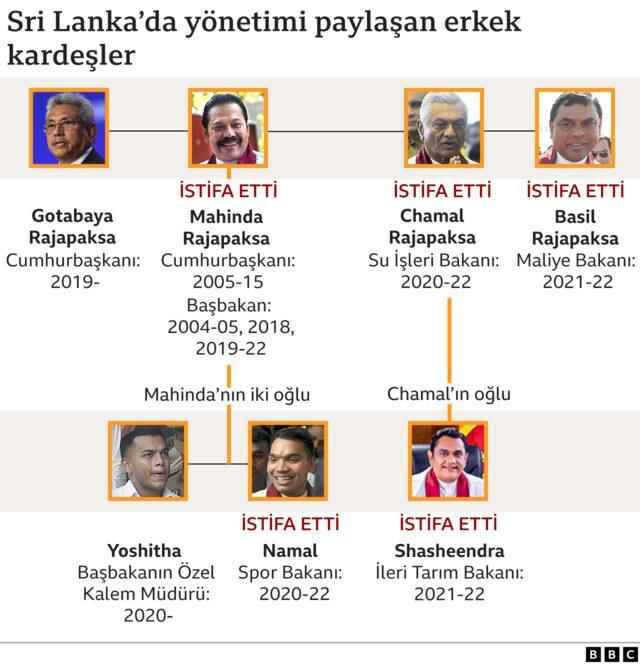
Soon other siblings and relatives also took up government posts.
The two brothers have acted together so far, but cracks have emerged in the alliance recently, especially when Gotabaya demanded his brother Mahinda’s resignation in response to the protesters’ backlash.
It was a big blow for Mahinda, who brought her brother and all her relatives to the government offices, and she did not want her political career to end like this.
Mahinda’s eldest son Namal says there is no problem between the brothers, but he continues:
“But there is definitely a political difference between the president and the (former) prime minister.”
Namal says his father has always been on the side of the peasants and the masses, while his uncle Gotabaya was different, saying that “he credits floating votes rather than the SLPP’s (ruling party) core vote or the masses.”
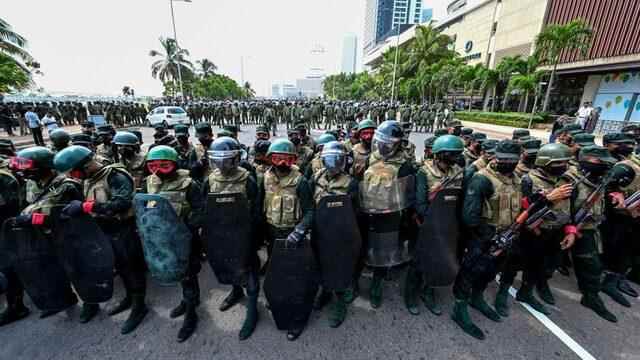
As for the demonstrators… they may have been happy with Mahinda Rajapaksa’s resignation, but they insist on demanding Gotabaya’s departure as well.
The President has resisted these demands so far, but it is not clear whether he can maintain this resistance these days when he lost the support of the voters who brought him to power in 2019.
It is reported that he told his close circle that he did not intend to be a candidate for the second term, but that he wanted to get the country out of the economic crisis.
But given the anti-Rajapaksa mood that has become widespread in the country, Gotabaya’s options seem limited. When the president, who is known for making tough decisions, is cornered, he can engage the military to maintain his power.
Why now?
The Rajapaksas enjoyed the support of the majority of the Sinhala majority for years. Despite allegations of ill-treatment against minority communities, human rights violations, attacks on the media and murders, they maintained their support among Sinhala.
But now the whole country is crushed by the economic crisis and the cost of living seems to have erased ethnic differences. Even Sinhalese chant slogans supporting minority rights in demonstrations.
It is clear, however, that the Rajapaksas will not be willing to relinquish control of the country so easily. Not only because they think about their political future, but also because they fear for their safety if a new government comes to power.
This may be why Ranil Wickremesinghe, an old and experienced politician who is also good with the Rajapaksa, was chosen for the prime minister’s seat.
But at the same time, many Sri Lankans are now fed up with these maneuvers and are beyond their patience.
Without a stable government, it will be very difficult to negotiate with the International Monetary Fund (IMF) for foreign debt restructuring. However, if the new government does not do this as soon as possible, it seems that the dimensions of power cuts and fuel shortages in the country will increase.
